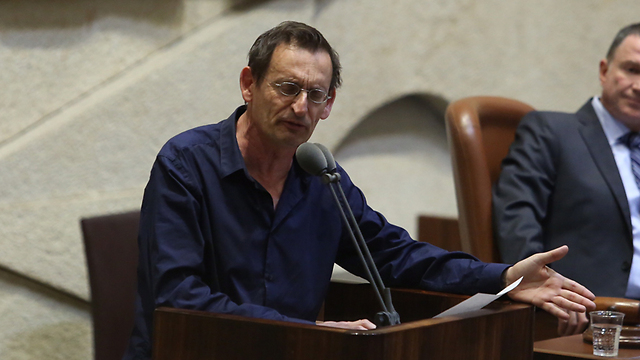The opening of the 2019 election season is not essentially any different than the 2015 elections. Although it seems that every day another party is formed or dismantled, but this does not stem from any fundamental ideological changes, but rather due to personal considerations: there are talented individuals who seek a convenient platform (Naftali Bennett and Ayelet Shaked), there are those who seem to enjoy sitting on the fence (Benny Gantz), and others simply cannot stand their partners (Tzipi Livni and Avi Gabbay).
Consequently, the issue is not the content but the branding. The media definitely prefers it that way. It is easier to showcase personalities, certainly those who know how to quarrel for the cameras, rather than ideas.
With politics becoming mere glorified sensationalism, it is no wonder that the Knesset is about to lose one of its most active and accomplished members, Dov Khenin. His announcement that he will not seek another term is another crack in the crumbling wall of the stature of the legislative institution.
At any rate, the outgoing Knesset already looks like a bus terminal on steroids, replete with members who aren’t earnest about their position as public servants. Now, a lawmaker who was truly diligent about the task for which he was sent to the Knesset prefers to try to influence via alternative channels.
It isn’t only sad because Khenin was successful from a position on the political fringe, never from within the true corridors of power, and managed to shape reality through the bills he advanced and the committees in which he was active. It is sad in a symbolic way too: Is an MK supposed to be someone who seeks out the closest camera to make sensational statements or propose outlandish laws solely to make headlines, before being quickly forgotten — or is an MK supposed to be someone who truly seeks to improve the lives of citizens and participate in meetings with critical significance? Is it only about insulting and badmouthing politicians on the other side of the aisle or is it about seeking cooperation that can penetrated the walls of partisan polarization?
Khenin belongs to the elite roster of parliamentarians. His colleagues from across the political spectrum can attest to this. His comrades expressed sadness because he taught them what it means to be a politician who didn’t enter politics so that the whole country would know his name.
The Knesset invests a lot of money in ads designed to raise its prestige. It is a waste — Dov Khenin is the precisely the face it needs. As he departs, it is unclear how much Israelis recognize him and the laws he advanced on matters ranging from the environment to animal rights.
My point is not to lament the absence of good politicians, they exist both in the coalition and in the opposition and will continue to do so after the upcoming elections. But there is a feeling that the ecosystem of Israeli politics is losing its ability to attract them.
Phenomena such as empowering the coalition and weakening the opposition, the cheapening of dialogue and the political-media culture all work to drive away individuals not motivated by media exposure and Facebook likes. We should be talking about this in the current elections cycle, but rest assured that it won’t happen.



















